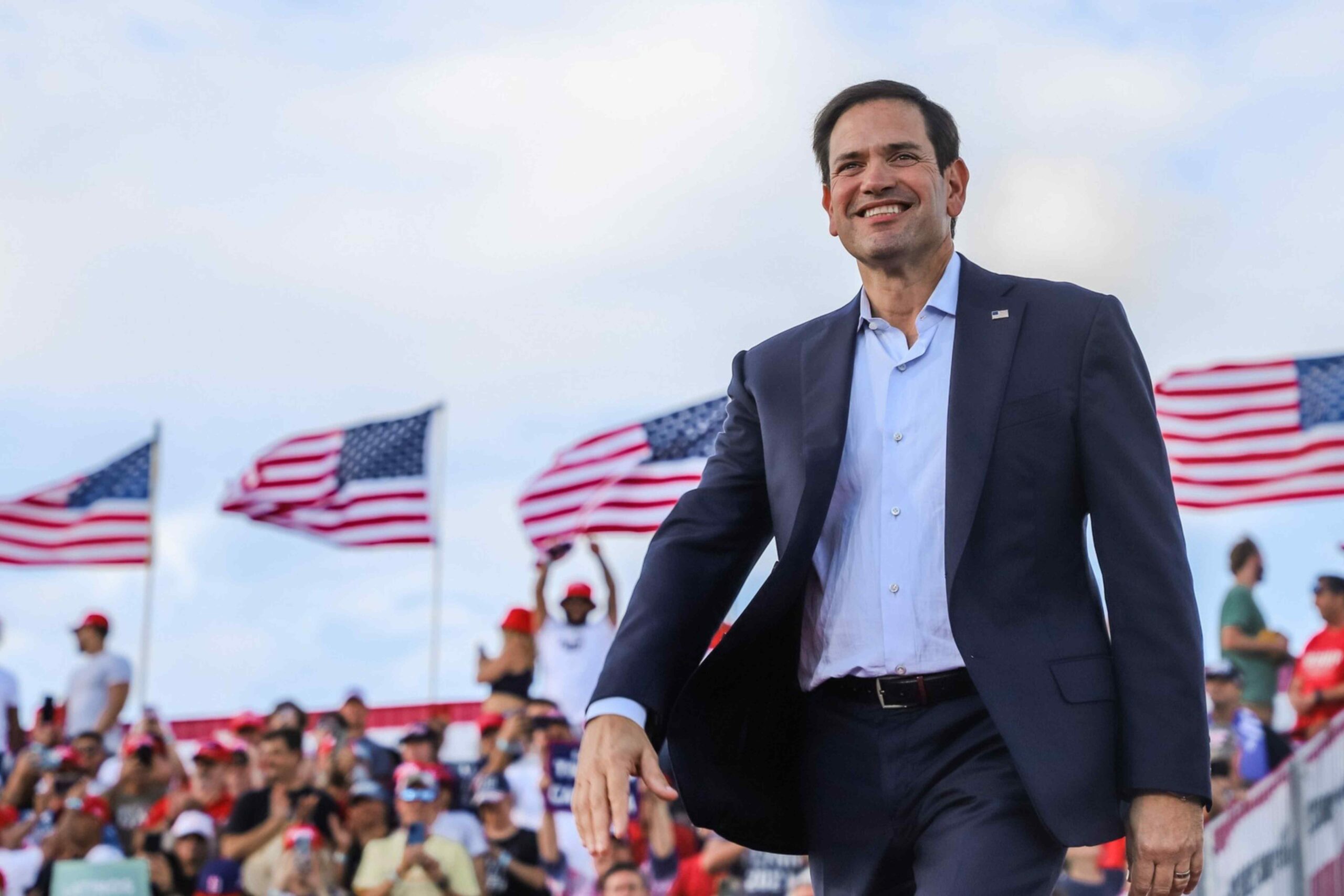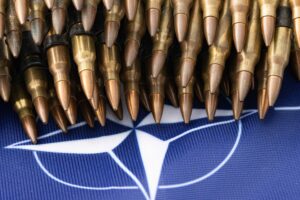DATA POINTS
- 3.1% – The chance asteroid 2024 YR4 will hit Earth in 2032, the highest odds yet of collision
- 5 – The number of flavors of Coca-Cola’s new prebiotic soda, “Simply Pop”
- 37 – The number of states with weather advisories this week due to dangerously cold conditions
- 100 Years – The number of years the Good Year blimp is celebrating at the Daytona 500 on Sunday
- 15 M – The number of people who watched the “Saturday Night Live” 50th Anniversary celebration, the most watched prime-time entertainment telecast in five years
- $88.5 M – The domestic ticket sales for the new Marvel movie, “Captain America: Brave New World”
La Tour de Rubio
Former Florida Senator Marco Rubio has stayed busy since he was unanimously confirmed as Secretary of State last month. Secretary Rubio and Russian officials met in Saudi Arabia to negotiate an end to the war in Ukraine, the first meeting of its kind since Russia’s offensive began three years ago. The meeting was more than talk, as both countries committed to restaffing their respective embassies to restart communications between the White House and the Kremlin. The meeting lays the groundwork for an anticipated meeting between Presidents Trump and Putin, which Trump told Putin would happen “very soon.”
The shift will enhance relations between the two countries but may come at the cost of the long-held American policy of isolating Russia. It’s worth mentioning that the meeting did not include any European countries, notably Ukraine. It’s still unclear what the impacts the restored U.S.-Russian relations will bring on ending the war in Ukraine, but one thing on Trump’s mind is joint de-nuclearization.
While these meetings do not necessarily signal an end to Russia’s ongoing attempt to seize Ukraine, they hold promises of gain for all parties involved, including Russia. For more updates on the delicate nuance of geopolitics, especially during wartime, tune into The Weekender.
No Fluke in the Flu
If it feels like everyone around you is sick—it’s because they probably are. This winter is hitting hard, marking the most intense flu season in over 15 years while surpassing past peaks, including the 2009 swine flu pandemic. The highly contagious H3N2 strain, combined with relaxed COVID-19 precautions, has driven cases to unprecedented levels.
Schools like Godley ISD in Texas have shut down due to mass outbreaks, while hospitals nationwide struggle with a “quad-demic” of flu, COVID-19, RSV, and norovirus. Yikes. Flu vaccination rates remain low, with only 44% of adults protected.
How do you stay away from the flu? Wash your hands like it’s your job, and avoid that coworker who insists it’s “just allergies.” With flu season still attacking, a little caution can go a long way. As the season rages on, staying vigilant is key to staying healthy.
The Emergence of Neurodivergence
More adults are realizing that they’ve never fully understood social cues, fixate on certain routines and topics, struggle to make eye contact, feel like they cannot understand the society around them, and miss moments to empathize. This has in part led to a 452% increase in autism diagnoses in adults between the ages of 26 to 34 from 2011 to 2022. Autism covers a wide range of symptoms under the “neurodivergent” checklist and can vary widely from individual to individual.
While most children are tested for autism and severe cases can be diagnosed early on, mild cases often slip through the cracks – leaving those undiagnosed-yet-on-the-spectrum to adapt and compensate as they get older. Although an adult diagnosis can be costly (upwards of $3,000), there are benefits to more attention. With more adult diagnoses taking place, more resources are available to those who need them the most.
Read More at the Associated Press
See You, E.U.
Defense Secretary Pete Hegseth’s recent announcements sent shockwaves through NATO allies. By signaling a step back from America’s traditional role as Europe’s security cornerstone, especially concerning Ukraine, Hegseth has sparked a big debate about how Europe will handle its own defense moving forward.
European leaders, who are used to U.S. military support, now face an important decision. French President Emmanuel Macron has suggested creating a nuclear defense system for all of Europe, bringing together British and French weapons to protect against threats. This plan highlights Europe’s goal to rely more on itself for defense instead of depending on other countries.
Europe now sits at a crossroads, with many (leaders and citizens alike) wondering what the future holds. Will countries like France and Germany pull together to create a stronger, more independent defense force? Or will the continent’s security still depend on distant allies like the U.S.? One thing is for sure: Europe is stuck between a rock (the U.S.) and a hard place (Russia), and its leaders are scrambling to figure out how to stand on their own while keeping peace in a world full of uncertainty.
Random Acts of Kindness Week
Have you heard the saying, “The best gift isn’t the one you receive, it’s the one you give”? Feb. 17 – 21 is National Random Acts of Kindness Week and saw communities across the country looking out for one another. No matter what happens in geopolitics, in Washington, D.C., or around the world, there is one thing we can control: how we treat each other. It takes little energy, cost, or commitment to do kind things for someone else. All it takes is a little bit of courtesy and empathy.
Even if you missed out on celebrating this week, you can make up for it by being thoughtful, complimenting, caring for, and supporting those around you this week (and every week after that.)
Thanks for reading this edition of The Weekender. We look forward to having you next week.
See you next week!
Be sure to follow us on Facebook, Twitter, and LinkedIn for more news and industry updates. To receive a copy of The Weekender in your inbox, sign up here.










